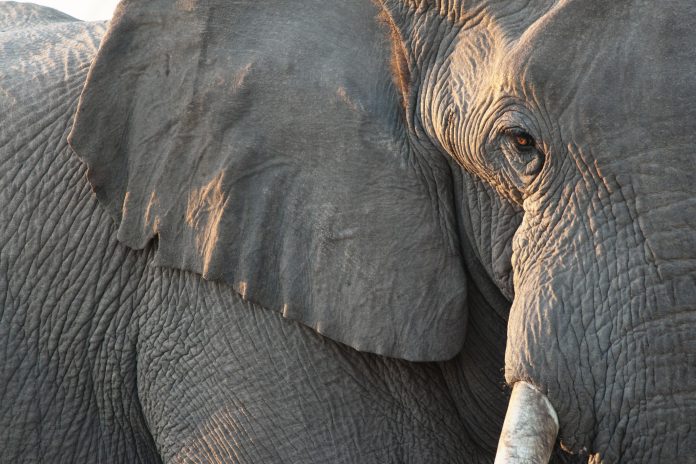First Published:
14th June 2024
Last Modified:
14th June 2024

Jens Ulrik Hogh and Stephan Wunderlich from the International Council for Game and Wildlife Conservation (CIC) discuss public perceptions of trophy hunting
In 2021, the animal rights organization Humane Society International (HIS)— which is officially campaigning for a worldwide ban on ‘trophy hunting’— commissioned and funded a survey (conducted by Savanta) in five different countries (Denmark, Germany, Italy, Poland, and Spain) to understand what the public thinks about trophy hunting and the import of these trophies to Europe.
Before the survey started, respondents were exposed to Humane Society International’s very own definition of trophy hunting: ‘hunting of wild animals for pleasure and to obtain parts or all of its body for display as a trophy at home.’
Motives of trophy hunters
This simplistic and somewhat negatively biased definition focuses only on HSI’s perception of the motives of trophy hunters. This definition ignores alternative motives like the hunting experience, the harvest of venison, the mental and physical challenges, and all the other aspects of hunting that motivate hunters to hunt. It also fails to inform the respondents of the actual consequences of recreational hunting, such as wildlife-based local income as an alternative to farming, which creates jobs in rural economies and is a strong incentive for land users to protect natural habitats.
Not surprisingly, the respondents were overwhelmingly against trophy hunting. Without presenting much documentation (apparently, only German results were published), HSI claimed that 85% of all Europeans favor a ban on importing hunting trophies. That number remained unchallenged in the political debate on trophy hunting across Europe for over two years. During that time, European parliamentarians pushed hard for national bans on importing hunting trophies while referring to the HSI survey that concluded that most voters favored a ban.
Bans on importing hunting trophies
In November 2023, a coalition of hunting organizations commissioned and funded another survey (conducted by YouGov) with the same focus and in the same countries as the 2021 HSI survey.
The respondents in this survey were asked the following question to gauge the general support for bans on importing hunting trophies:
‘It is acceptable for a hunter from my country to keep a part of a legally hunted animal (e.g., horns, antlers) as a keepsake, provided that the hunt subsidizes conservation efforts and adheres to international regulations.’
In stark contrast to the HSI survey results from 2021, most of the more than 7,000 respondents (53%) accepted the import of legally obtained hunting trophies, while only 22,7% favored a ban. The rest of the respondents declared themselves neutral on the matter.
So, according to HSI, 85% of Europeans favor bans on the import of hunting trophies. According to the recent YouGov survey, the number is 23%. They cannot both be right. The main difference between the two is the wording of the questions.
Similar surveys were done in Belgium and Austria almost simultaneously with the YouGov survey. The results were virtually identical. In Belgium, 31% favor hunting trophy import bans; in Austria, the number is only 14%. The rest of the population either accepts the import of hunting trophies on the condition that it is legal, sustainable, and leads to nature conservation, or they do not have an opinion.
In mid-February, The Royal Society published an article about a recent scientific study concerning the public opinion about trophy hunting in the US, South Africa, and the UK. The study found that most people in South Africa and the US are not opposed to trophy hunting of either elephants or zebras if the meat is utilized for human consumption locally and if the hunt supports local conservation. The support was more robust for zebra hunting than for elephant hunting. The study also found that in the UK, most of the public does not accept hunting under any circumstances.
So, when European and North American parliamentarians believe their push for hunting trophy import bans resonates with most voters, they are clearly wrong. The average voter has a much more balanced approach to the complex subject of recreational hunting and its effects than many politicians. There is strong general support for regulated hunting as it is practiced by European hunters at home and overseas.
It may be time for politicians to take time out to get in tune with voters, scientists, and hunters rather than chase elusive popularity on very dubious grounds.

Those who support and or profit from killing animals, called hunting,want to continue exploiting animals. So, they want to prove that everything is okay and the public really is okay with parts as trophies. Next they will tell us that trophy hunters are really kind and compassionate. That they really love animals and nature. That they are good humans who simply love to kill and eat their victims, andthat we should support their right to kill and put heads on their walls. Humans kill with guns and seem to enjoy the process. How sick.
LikeLiked by 2 people